Your home’s electrical system lets you keep your food cold, maintain a comfortable home temperature, cook your meals, wash your clothes, clean your house, entertain guests, run your devices, keep the lights on, and much more. None of that is possible if your electrical panel malfunctions. Issues with your electric system could also lead to serious hazards, such as a fire.
But you can get ahead of those problems by scheduling an inspection with your electrician. In this article, we’ll discuss the signs to look out for that indicate you’re due for an inspection, along with the benefits of regular check-ins and tips for long-term care and maintenance of your home’s electrical system.
How You Can Upgrade Your Home With a New Electrical Panel
A well-kept electrical system can completely transform the way you live your day-to-day life. An upgraded panel will boost functionality and your enjoyment of your home in the following ways:
- Install home automation — Smart homes are rising in popularity. With an improved electrical panel, you can have one as well. There are plenty of electricians who boast a specialty in home automation. By working with one of those professionals, you can install smart lights, HVAC systems, televisions, and even window shades. The more of these devices you have, the more energy efficient you’ll become in your home.
- Wire a home theater — A new panel would allow any film lover to fulfill their dream of having a home theater. With a little help from a professional electrician, you can easily install a booming sound system that will elevate your movie-watching experience.
- Generate your power at home — If you switch your house to a solar or wind-powered system, you can drastically decrease your energy bills and reduce your environmental footprint. These systems do require a significant investment, but homeowners running their houses on clean energy will typically see a generous tax credit.
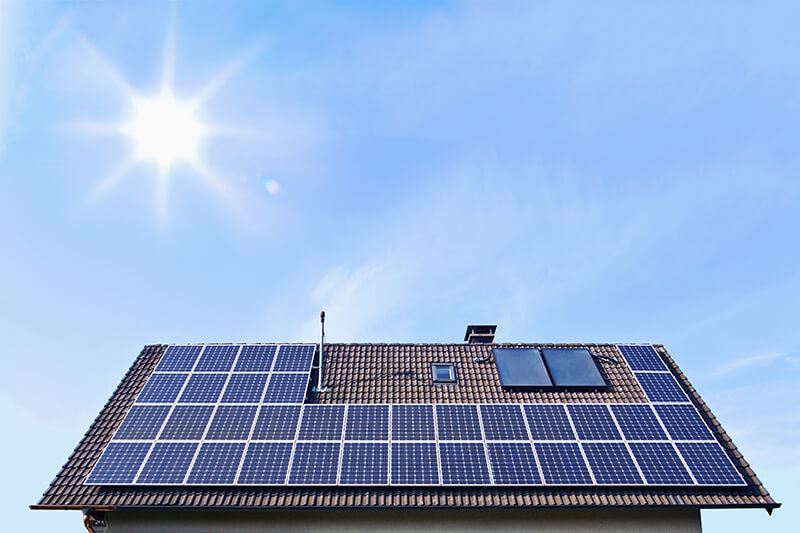
- Improve your home’s surge protection — A circuit breaker provides protection for your house against most surges. But something serious, such as a lightning strike, can completely fry your system. To protect against such rare, but devastating electrical incidents, you can work with an electrician to install an entire-house surge protector on your electrical panel that will fully protect your home.
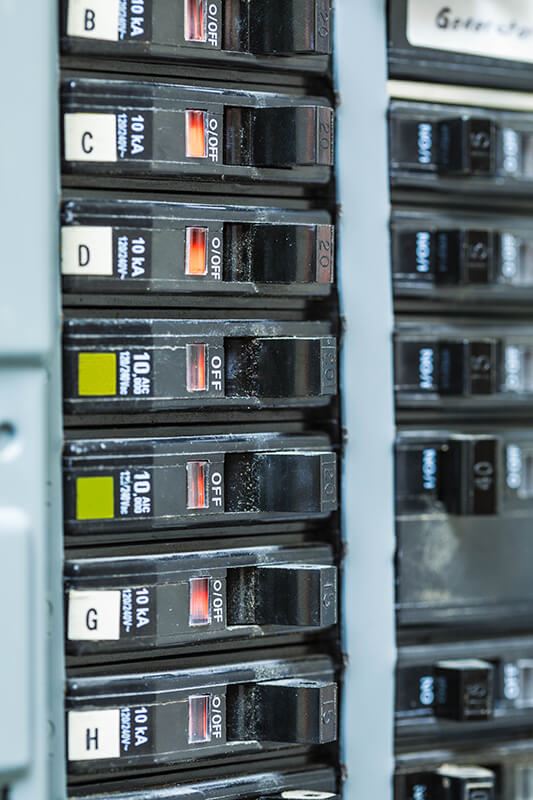
If you’re considering making an upgrade like this to your home, don’t hesitate to talk to your electrician. These changes will set the foundation for more exciting home updates that can be made in the future.
11 Signs You’re Due for an Electrical Inspection
When you regularly check your electrical panel, you can get ahead of issues before they snowball into dangerous hazards. If you see any of the following signs on your system, call your electrician right away:
- Flickering or dimming lights — Lights flickering anywhere in your home could be a sign that appliances in your home are drawing too much power from your panel. An electrician can test your circuit to see if the power can be redirected and find a way for you to have more high-powered appliances in your home drawing the correct level of energy.
- Hot sockets or electrical panel — If your sockets or electrical panel are warm to the touch, there’s a problem. Hot sockets are an indication that you may have faulty electrical wiring. Avoid using any sockets that feel warm. If your panel is hot, this is a sign of a severe malfunction.
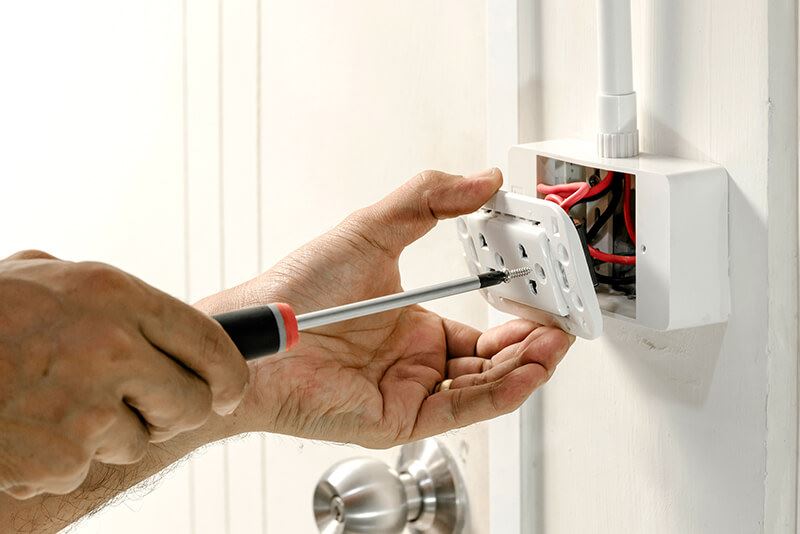
- Strange sounds or smells — A buzzing or humming noise means you may have issues with your wiring. If you notice a burning smell in your home and you’re not cooking anything, you should immediately check your electrical system. A plastic burning smell usually results from the plastic jacket of an electrical wire melting. A wood smell could indicate damage to your home’s walls. If it’s a subtle smell that is hard to identify, you can simply call your electrician. But if it’s overpowering, evacuate your home and call 911.
- Constantly tripping circuit breakers — It’s normal for your electrical panel to trip if an area of your home is drawing too much power. But if this continues, you may have parts of circuits that are overloaded by an overwhelming amount of power usage. An electrician can give you more information about upgrading your circuit to correct this issue.
- Your electrical system is decades old — A good system should last you around 25-40 years. If yours is any older than that, it’s worth getting it checked out. Even if your system isn’t struggling to provide your house with electricity or you don’t notice any glaring issues with your panel, a system that falls within that timeframe needs to be inspected by a professional. They’ll be able to catch any signs of normal wear and tear before they potentially snowball into a significant and dangerous hazard. It’s wise to get in the habit of having an older system inspected regularly, even if recent inspections were satisfactory.
- Your panel doesn’t use breakers — Another sign of an electrical system that is old and needs to be replaced is one that doesn’t use breakers. Houses built before the 1960s used fused panels to direct electricity. Those are now considered to be a fire hazard and should be replaced with an electrical panel as soon as possible.
- Rusted or broken panel — If you open up your electrical panel and find water or rust, don’t touch it. Instead, call an electrician right away. Those indications are a fire hazard, which is a clear sign that your system needs to be repaired or replaced immediately.
- You don’t have enough outlets — The number of outlets in your home is an indication of how much electricity it’s wired to take. If you find yourself using multiple power strips to accommodate for that lack of outlets, that’s a sign that you’re in danger of overwhelming your electrical system. You should have an electrician inspect your system before you unintentionally damage it.
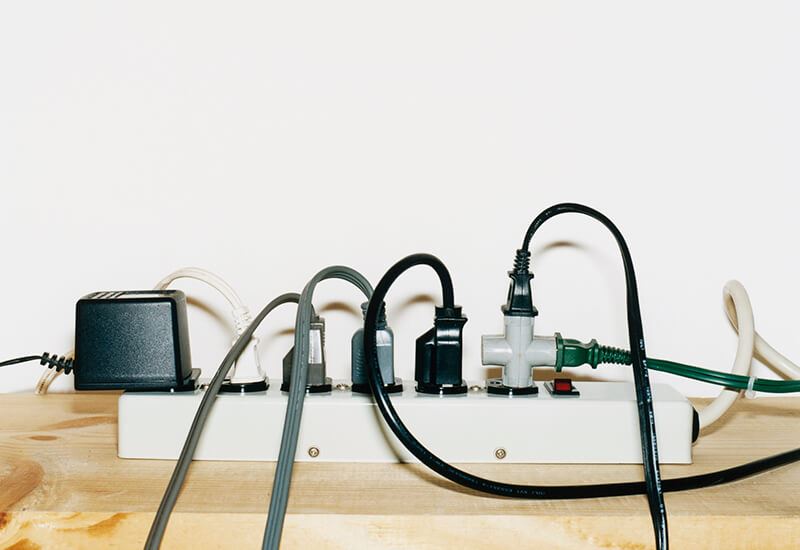
- Sparking when plugging things in — If you see repeated sparks, that’s a sign that something is wrong with your electrical system. The root cause could be either a wiring problem or an outlet problem, and your electrician will inspect the situation and address the issue.
- Remodeling your home — If you’re about to embark on a remodel, it’s worth it to have an electrician check out your current system. It’s more than likely that you’ll need to replace your breaker, as you may need to update different parts of your home’s electrical system to accommodate your planned upgrades. This is a smart investment in the long run, as it will boost your home’s resale value when it’s time to sell it.
- Installing additional appliances — If you’re considering replacing an old fridge or dishwasher, or adding a brand-new large device, have an electrician inspect your system before any installation occurs. Your current system may only be able to handle older devices. You need to make sure that your panel’s amps match your needs so everything will run smoothly with no disruption.
What are The Benefits of Having Your Electrical System Inspected?
You need to pay an electrician and take time out of your day to be home when they inspect your system. But that’s a small price to make sure that you are safely receiving the right amount of electricity. Here are some other benefits to expect:
- Stay up-to-date with housing codes — Housing codes change over the years. If your house is older, every component of it is built with those old codes in mind. An electrical system inspection will reveal if your panel falls short of those safety standards and can inform you of what you need to do to get up to code.
- Identify damage — The most important benefit of an inspection is to identify any damage before it becomes a bigger issue. While you may be able to spot a problem on your own, a trained expert may be able to catch things that you would not otherwise notice.
- Avoid malfunctions — A damaged electrical system can lead to damaged electronics or an electrical fire. But if you have an electrician check out your system, you can avoid these issues altogether.
- Save money — Those issues that stem from malfunctioning panels are often very costly. If you pay a little to have an electrician inspect your panel, you’ll be able to avoid a larger bill in the future.
What Should I Expect from an Inspection?
An electrician will be checking for a few things that will be beyond the understanding of the average homeowner. But here are three clear and simple things to expect from an inspection:
Safety — Faulty wiring can cause electrical fires or overload the devices you depend on daily. Your electrician will confirm you are not at risk for this happening by checking your meter, electric panel, wires, and outlets.
Check for correct outlets — Outlets near water should be equipped with a ground fault circuit interrupter (GFCI). This cuts the power to the circuit as soon as it detects a spike and provides a safety mechanism in case the water causes a short. An electrician will test these outlets by plugging in something small and pushing the test button. If the device instantly turns off, the outlet is working properly. If not, they’ll advise you on options for upgrading.
Confirm wires match their purpose —Let’s face it, all those wires coming out of your circuit breaker are confusing. Luckily, your electrician knows exactly which purpose all of them are meant to serve. During an inspection, they’ll confirm that all wires and outlets are matched up to the correct amperage for their purpose.
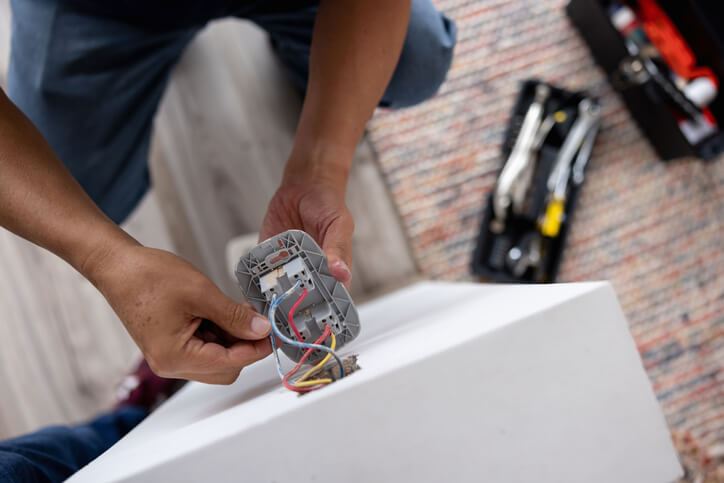
How to Maintain Your Electrical System
Don’t overlook the well-being of your electrical system after you get an inspection. Here are some general maintenance tips to follow to keep your panel running smoothly until your next inspection:
- Check your outlets with a multimeter — If you don’t already have one, purchase a multimeter tool. This handy device will enable you to measure voltage and current. Having one on hand will allow you to regularly check your circuits and switches.
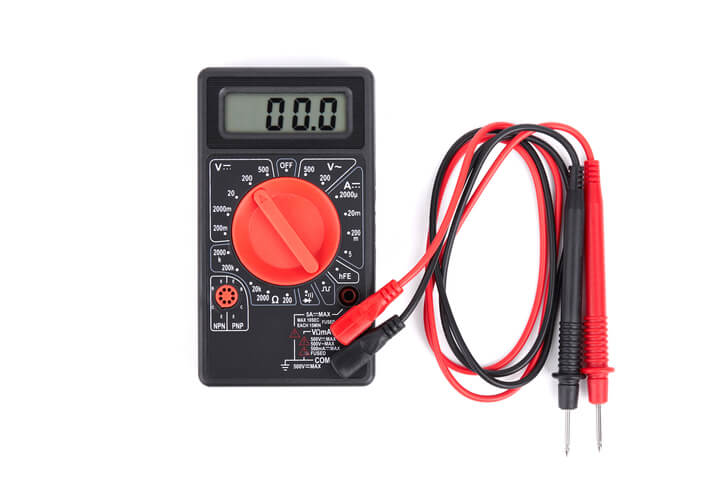
- Dust appliances — One of the easiest ways to extend the lives of your appliances is to simply keep them clean. Dust and dirt can prevent some electronics from cooling themselves, leading them to overheat. Get in the habit of regularly dusting your devices to stop this from happening.
- Switch to energy-saving devices — You can save 10 percent or more on your electric bill by switching to energy-saving devices. As an added bonus, these devices will often help you become more productive with certain tasks around the house.
- Inspect cords and wires — Wires and cords become worn out over time. Those that are overly worn will start to fray, which could become a major hazard. Make sure all of your cords and outlets are in good shape.
- Add USB outlets — If you find yourself using too many extension cords, you may overwhelm your system. Add some outlets with USB portals instead. These outlets use less energy and charge devices up to 40 percent faster.
- Upgrade to LED light bulbs — LED lights use 28-80 percent less electricity than incandescent bulbs, meaning you’ll be less likely to overwhelm your system. These bulbs are costly, but they last up to 25 times longer than an incandescent bulb.
- Install a whole-house surge protector — Power surges can fry appliances and even cause fires in the worst circumstances. Install a surge protector that can cover your entire house to keep your home and appliances safe.
Make Regular Electrical System Inspections a Habit
Your electrical panel powers your entire home. One small issue can cut your electricity in an instant, or cause a fire. Keep an eye on your home’s electrical system for anything that feels off. If you experience something such as a strange smell or flickering lights, call your electrician right away. Not only can a professional electrician fix any issues, but they can ensure that you avoid malfunctions, stay up-to-date with housing codes, and save money.
Considering a new electrical system as part of your home remodel? today for a consultation!
Generate your power at home — If you switch your house to a solar or wind-powered system, you can drastically decrease your energy bills and reduce your environmental footprint. These systems do require a significant investment, but homeowners running their houses on clean energy will typically see a generous tax credit. Hot sockets or electrical panel — If your sockets or electrical panel are warm to the touch, there’s a problem. Hot sockets are an indication that you may have faulty electrical wiring. Avoid using any sockets that feel warm. If your panel is hot, this is a sign of a severe malfunction.
Hot sockets or electrical panel — If your sockets or electrical panel are warm to the touch, there’s a problem. Hot sockets are an indication that you may have faulty electrical wiring. Avoid using any sockets that feel warm. If your panel is hot, this is a sign of a severe malfunction. You don’t have enough outlets — The number of outlets in your home is an indication of how much electricity it’s wired to take. If you find yourself using multiple power strips to accommodate for that lack of outlets, that’s a sign that you’re in danger of overwhelming your electrical system. You should have an electrician inspect your system before you unintentionally damage it.
You don’t have enough outlets — The number of outlets in your home is an indication of how much electricity it’s wired to take. If you find yourself using multiple power strips to accommodate for that lack of outlets, that’s a sign that you’re in danger of overwhelming your electrical system. You should have an electrician inspect your system before you unintentionally damage it. Check your outlets with a multimeter — If you don’t already have one, purchase a multimeter tool. This handy device will enable you to measure voltage and current. Having one on hand will allow you to regularly check your circuits and switches.
Check your outlets with a multimeter — If you don’t already have one, purchase a multimeter tool. This handy device will enable you to measure voltage and current. Having one on hand will allow you to regularly check your circuits and switches.

